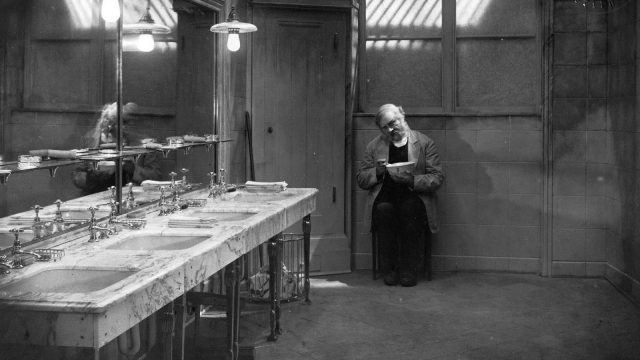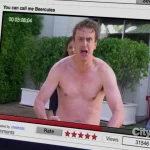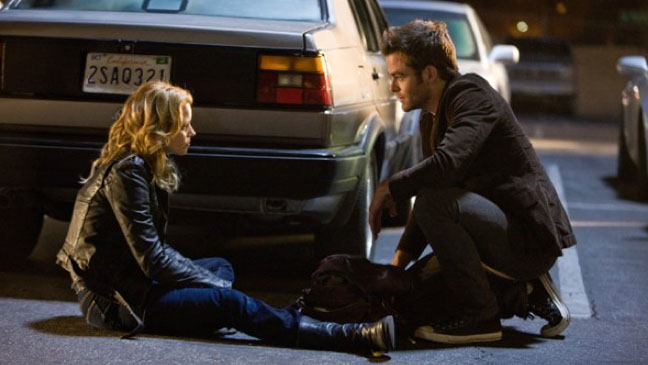Monday Movie: The Last Laugh, by David Bax

This article originally ran as part of a Home Video Hovel review.
From our vantage point, nearly 100 years later, cinema in 1924 can appear nascent. But it was already decades old and had come into its own as an artistic medium and a populist entertainment. F.W. Murnau’s The Last Laugh is an example of both. Murnau’s genius and passion for filmmaking allowed him to accomplish something exceedingly rare even today, a story told entirely visually, employing no intertitles (with one exception but more on that later). But The Last Laugh is not some fringe experiment. No one, for example, was going to give anyone the money to build the movie’s extravagant sets for the purpose of novelty. This was expected to be a big hit and it was.
Emil Jannings stars as the doorman of a fancy hotel whose position is seen as a prestigious one among the poverty-wracked folks who live in his slummy neighborhood. Though he’s just one of many members of the service industry the hotel’s rich guests encounter throughout their stay, he’s also the first, making him the face of the business. It’s a trusted position that inspires as much jealousy as awe among his fellow tenement dwellers. So when he is demoted to washroom attendant, there are plenty of people eager for the chance to kick him while he’s down.
Class divide was a topic very much on the minds of Germans during the Weimar Republic (see also Metropolis). Murnau addresses the subject with a bitter, tragic irony, focuses on the illusory upward and downward mobility within the limited parameters of the lower class. This is reflected in the towering slum, the repeated motif of elevators and, in a bravura technical feat, the rising and falling motion of the camera itself.
This all comes before the single intertitle mentioned before. Among The Last Laugh‘s many legacies, we find an early version of the oft-told story of studio interference. Dismayed by the film’s bleakness, Murnau’s financiers had him tack on a happy ending. He did that and more. The final few minutes of The Last Laugh are madly, exuberantly positive, to the extent that Murnau seems to be making an acerbic joke out of the fairytale of self-improvement that the poor are fed. That was the director’s own last laugh.






























